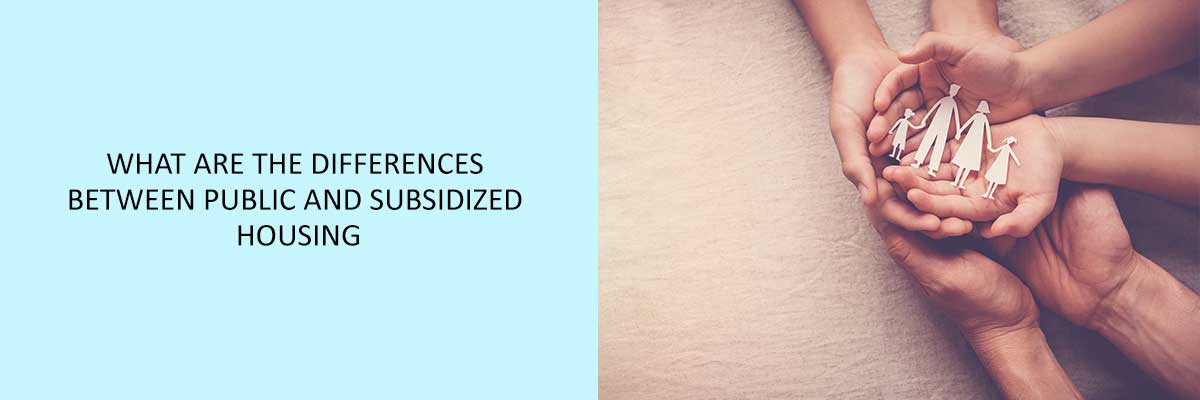Different housing programs have different specialties. Subsidized housing and public housing are both types of government-funded accommodation that help families and individuals who can’t afford it to have somewhere to live, but there are several differences between the two that you should be aware of. For example, the federal government oversees public housing and subsidizes around 6 million units of housing, while the local government or a non-profit organization can administer subsidized housing.
Who Is Eligible For Public and Subsidized Housing?
If you have an income below the following amounts, you may be eligible for public or subsidized housing;
Public Housing (The Social Housing Registry): All social housing units are subsidized, and the rents charged are geared to income. Income ceilings range from $50 to $1,000 per month. To be eligible for subsidized housing, your income must be below the income ceiling.
Subsidized Housing (The Subsidized Housing Registry): All housing units are subsidized and the rents charged are geared to income. Income ceilings range from $50 to $1,000 per month. To be eligible for subsidized housing, your income must be below the income ceiling.
Who Is The Landlord For Public and Subsidized Housing?
The landlord oversees the day-to-day operations of the building in which you live. Whether you live in public housing or subsidized housing, the person who oversees your building is not always the same person. Public housing is owned by a government agency, such as the Department of Housing and Urban Development (HUD). If you live in HUD-assisted housing, the HUD-approved housing authority is your landlord. HUD-approved housing authorities may choose to manage public housing themselves, or they may contract with private property managers to manage public housing on their behalf. If you live in subsidized housing, the government does not own your building. Instead, you live in a privately owned building that is subsidized by the government.
Where To Apply For Public and Subsidized Housing
To apply for public housing, you need to submit an application to the housing authority in the town or city where you would like to live. And Section 8 vouchers can be applied from any housing authority that administers a Section 8 voucher program. You can also contact your local PHA by visiting their website or calling them. You can find your local PHA by using the HUD Public Housing Locator. Section 8 housing is privately owned and managed, and you pay a portion of your income toward rent, with the difference subsidized by the government. To apply for subsidized housing, you need to apply at every development that you are interested in living in.
Most people who qualify for public housing have very low incomes. In fact, there are income limits that determine who can get housing assistance. These limits vary from region to region, but they are typically around $31,000 per year for a family of four (including parents and children). Some regions use higher income limits, however, such as $60,000 per year for a family of four. In addition, you may also need to have very low assets in order to qualify.
Bottom Line
People who live in public housing or subsidized housing have special rights and responsibilities that are different from those of people who live in private housing. Most people who live in subsidized housing don’t stay in one place for very long. But when you’re living in public housing or receiving a housing voucher, moving isn’t a personal choice. You can be evicted from your subsidized apartment, and even if you live in public housing, you can be asked to move at the end of your lease.
To know more about HUD-financed or subsidized property, attend the Compliance Prime webinar.


